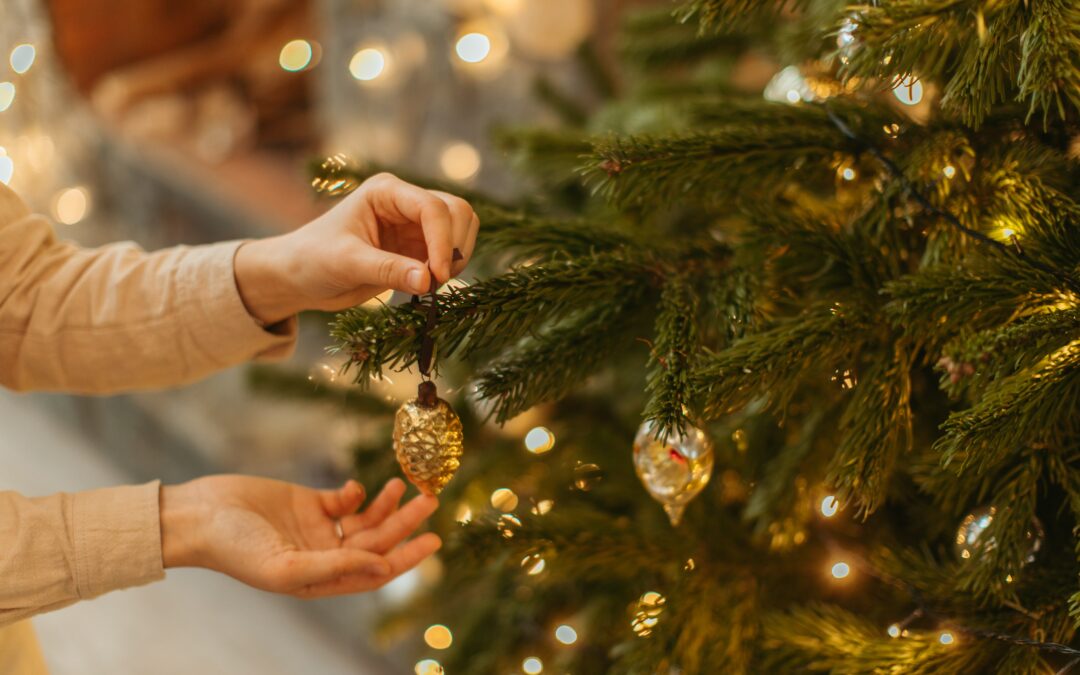Environmental Benefits of REAL Christmas Trees
Real Christmas trees provide a plethora of benefits to the environment, and our farmers go the extra mile to ensure natural resources are preserved for future generations. Check out these facts on the environmental impact of real Christmas trees:
While growing, real trees produce significant amounts of oxygen that is released into the environment, protect soil from erosion and provide refuge for wildlife.
Real Christmas trees are the best environmental option for consumers, according to former Greenpeace President Patrick Moore, Ph.D.
Pacific Northwest Christmas trees are grown on sustainable farms in the U.S., just like produce, nuts and other crops, so they do not threaten natural forests.
Real Christmas trees reduce carbon emissions by absorbing carbon dioxide and producing oxygen, which people, plants and the environment need to survive.
Real Christmas trees are renewable, and growers plant one or more trees to replace every tree they harvest.
Many times, Christmas trees are grown in soil that won’t support other crops.
Each holiday season, there are news articles, web sites and commentators who debate whether it is better for the environment to use an artificial Christmas tree or a natural Christmas tree. This can often be confusing to consumers who want to make an eco-friendly choice, but can’t find a simple, straight-forward “apples to apples” comparison. The table below illustrates that Real Christmas Trees are the best environmental choice.
|
Real Trees |
Artificial Trees |
|
PLACE OF ORIGIN |
|
|
United States & Canada |
85% from China |
|
|
|
|
METHOD OF PRODUCTION |
|
|
farming |
factory |
|
planting takes place Jan-May |
raw materials sent to factory & assembled |
|
estimated 40-45 million trees planted in |
product is shipped to U.S. then distributed |
|
estimated 446 million trees growing on |
number of factories unknown |
|
tree farms support complex eco-systems |
factories only consume natural resources |
|
|
|
|
COMPONENTS |
|
|
plant tissue |
plastics and metals |
|
100% biodegradable |
non-biodegradable |
|
|
|
|
PVC FREE? |
|
|
Yes |
No |
|
|
|
|
LEAD FREE? |
|
|
Yes |
No (lead is used in the process of making |
|
|
|
|
CARBON NEUTRAL? |
|
|
Yes |
No |
|
trees absorb carbon dioxide |
plastic is a petroleum byproduct |
|
when decomposing, carbon, nitrogen |
|
|
|
|
|
CHEMICALS? |
|
|
No |
Yes |
|
Scientists have measured cut Christmas |
PVC itself is a dangerous chemical |
|
Many different bugs, fungi and parasites |
Manufacture of PVC creates and disperses |
|
Most pesticides are ground applied |
Released into air or water, dioxins enter |
|
Herbicides are used to suppress, not kill off, |
|
|
If someone tells you “there are chemicals on |
|
|
|
|
|
DISPOSAL |
|
|
Recycled |
Landfill |
|
Used trees can be recycled in a variety of ways |
Fake trees can’t be recycled and end up |
|
Decomposing trees add nutrients back into the earth |
All of the accumulated fake trees are a |
|
|
|
|
RENEWABLE RESOURCE? |
|
|
Yes |
No |
|
New trees are planted every year |
Petroleum, used to make plastic, is a |
|
|
|
|
ECO-FRIENDLY? |
|
|
Yes |
No |
Visit The Lot
Hours
Opening the day after Thanksgiving!
Weekdays: 3:30pm – 8:00pm
Weekends: 9:00am – 5:30pm
Location
749 West El Camino Real
Mountain View, CA 94040
Corner of Castro & El Camino
Chase Bank Parking Lot (next to Clarke’s)

